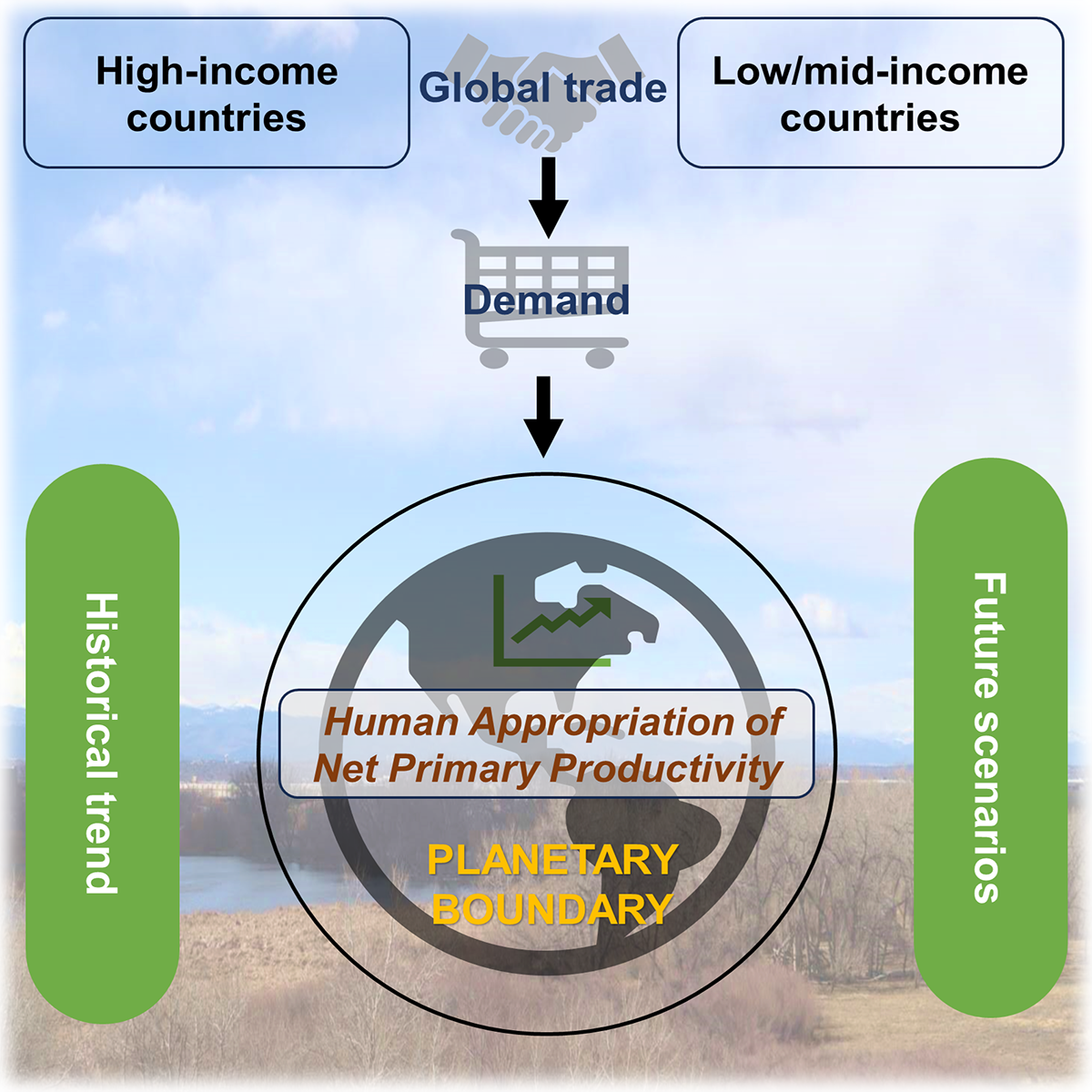Study urges for global cooperation to curtail overconsumption.
Meeting the growing demand for land and Study unveils urgent need for global cooperation to curtail overconsumption and preserve earth’s vital resources.resources due to economic and population growth while respecting Earth's finite capacity is a major challenge. There's a critical threshold, called the "planetary boundary," beyond which Earth's ability to sustain life could be irreversibly damaged.
Recent research, led by Ph.D. student Xiangjie Chen, Associate Professor Kuishuang Feng and Professor Laixiang Sun, alongside collaborators from China and the Netherlands, sheds light on this issue. They created a new method to track and predict the human appropriation of net primary productivity (HANPP), which measures how much of the Earth’s natural growth humans use.
Prior studies have suggested that solutions for keeping HANPP within planetary boundaries lie in demand management, yet the HANPP consumption by country and its future trends remain unclear. The researchers filled this important research gap in their recently published paper in the high-impact journal One Earth (Impact Factor 2022: 16.2).
Their findings show that high-income countries are consuming too much, while demand is rising fast in low- and mid-income nations. This trend threatens to exceed Earth's limits, according to their novel assessment framework. To address this, global cooperation is essential. Solutions include restructuring supply chains and sharing agricultural technologies to reduce pressure on land and the biosphere.
Their analysis highlighted the necessity for global cooperation in restructuring supply chains and sharing agricultural technologies.


